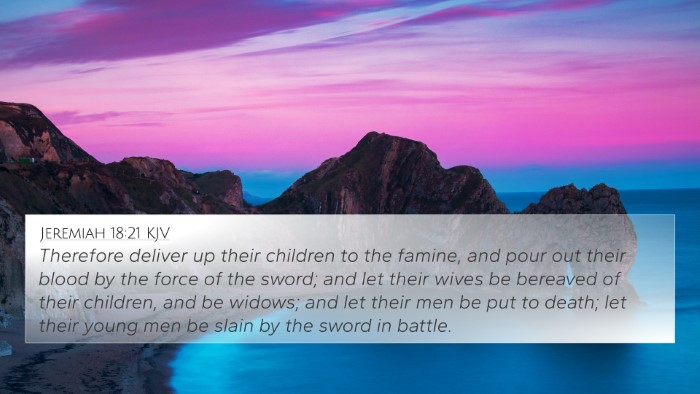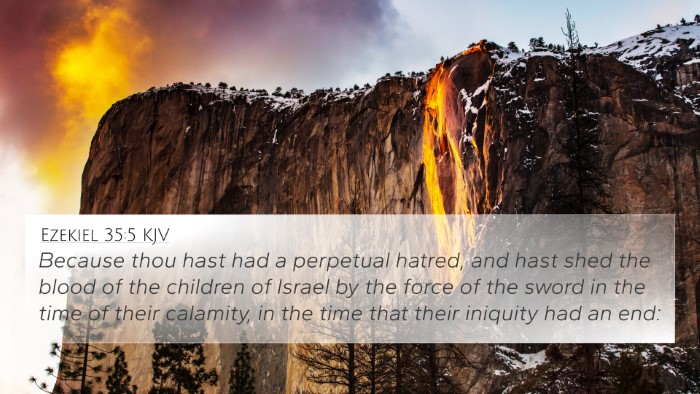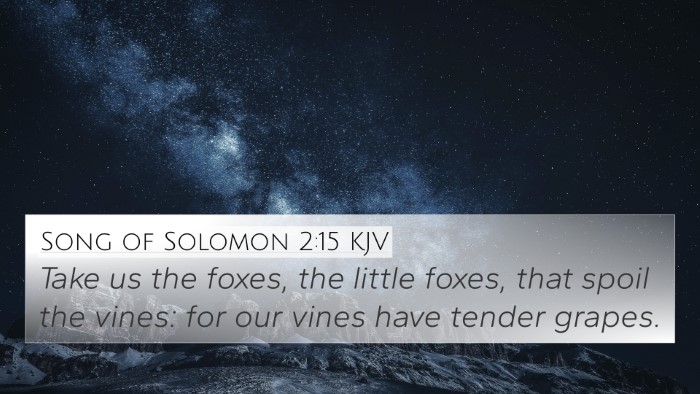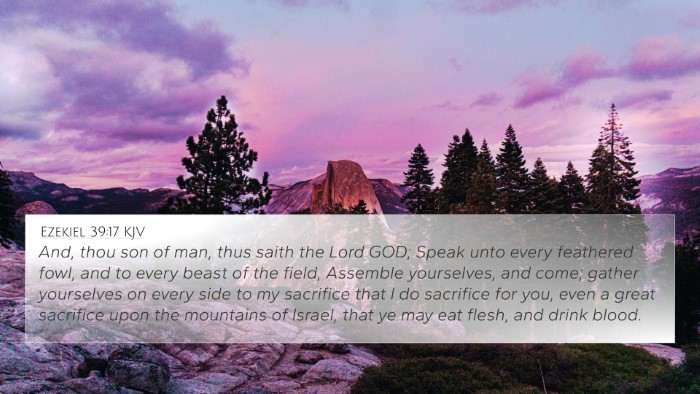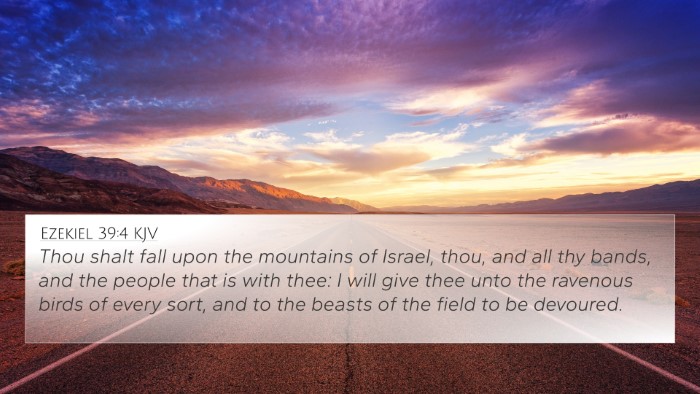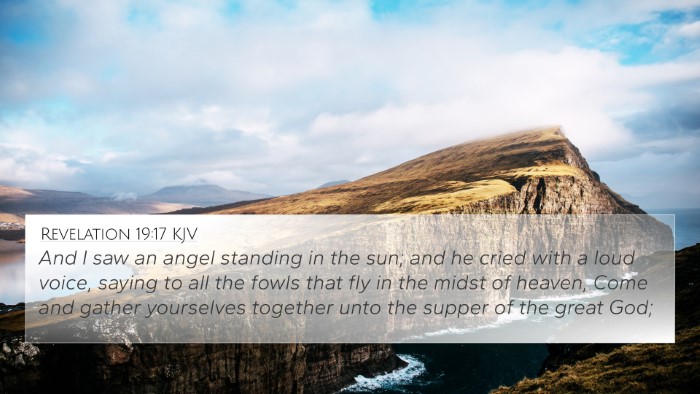Psalms 63:10 - Meaning and Interpretation
The verse Psalms 63:10 states, "They shall fall by the sword: they shall be a portion for foxes." This verse reflects themes of judgment, divine justice, and the fate of the wicked as interpreted through various public domain commentaries.
Summary of Interpretations
This passage highlights the consequences awaiting the enemies of God. Understanding its meaning requires an examination of similar verses across the Scriptures that capture the potential downfall of those who oppose God's will.
Commentary Insights
-
Matthew Henry's Commentary:
Henry emphasizes the inevitability of divine justice for the wicked. He notes that those who fight against God’s people will face downfall as surely as a sword cuts down enemies in battle. Their ultimate fate, described as becoming 'a portion for foxes', illustrates their complete humiliation and the loss of their pride.
-
Albert Barnes' Notes:
Barnes elaborates on the consequences of living in opposition to God's purposes. He suggests that the reference to foxes illustrates that the defeated enemies will be left with nothing. The imagery conveys that what was once feared and powerful will become food for the wild and helpless, indicating a turnaround in fortunes.
-
Adam Clarke's Commentary:
Clarke interprets the verse as a prophecy regarding the fate of adversaries, emphasizing the historical context during which the psalm was written. Clarke suggests that this reflects David's confidence in God's deliverance from his enemies, culminating in their ultimate disgrace as they succumb to their own violent ways.
Bible Cross-References
To deepen the understanding of Psalms 63:10, consider the following cross-references that shed light on its themes:
- Psalms 27:2: "When the wicked, even mine enemies and my foes, came upon me to eat up my flesh, they stumbled and fell."
- Proverbs 11:21: "Though hand join in hand, the wicked shall not be unpunished: but the seed of the righteous shall be delivered."
- Isaiah 66:24: "And they shall go forth, and look upon the carcases of the men that have transgressed against me: for their worm shall not die, neither shall their fire be quenched; and they shall be an abhorring unto all flesh."
- Matthew 10:28: "And fear not them which kill the body, but are not able to kill the soul: but rather fear him which is able to destroy both soul and body in hell."
- Revelation 19:21: "And the remnant were slain with the sword of him that sat upon the horse, which sword proceeded out of his mouth: and all the fowls were filled with their flesh."
- Romans 6:23: "For the wages of sin is death; but the gift of God is eternal life through Jesus Christ our Lord."
- Galatians 6:7: "Be not deceived; God is not mocked: for whatsoever a man soweth, that shall he also reap."
Understanding Themes through Cross-Referencing
By examining the connections between Psalms 63:10 and the aforementioned verses, several recurring themes emerge:
- Divine Justice: God's retribution against the wicked is a constant theme.
- The Fate of the Wicked: Imagery of death and devastation follows those who oppose God.
- Hope for the Righteous: While the wicked face destruction, the faithful are promised protection and rewards.
Tools for Cross-Referencing
To effectively study cross-references alongside Psalms 63:10, consider using:
- Bible concordance for locating related verses.
- Cross-reference guides that provide systematic links.
- Online resources designed for comprehensive Bible cross-reference materials.
Conclusion
In summary, Psalms 63:10 compels readers to reflect on the fate of those who turn against God. Using a comparative Bible verse analysis, one can uncover a deeper understanding of this verse's implications by cross-referencing with related scriptural passages. Recognizing the interconnected themes strengthens one's grasp of Biblical teachings on justice, sin, and ultimately, the redemption available through Christ.



